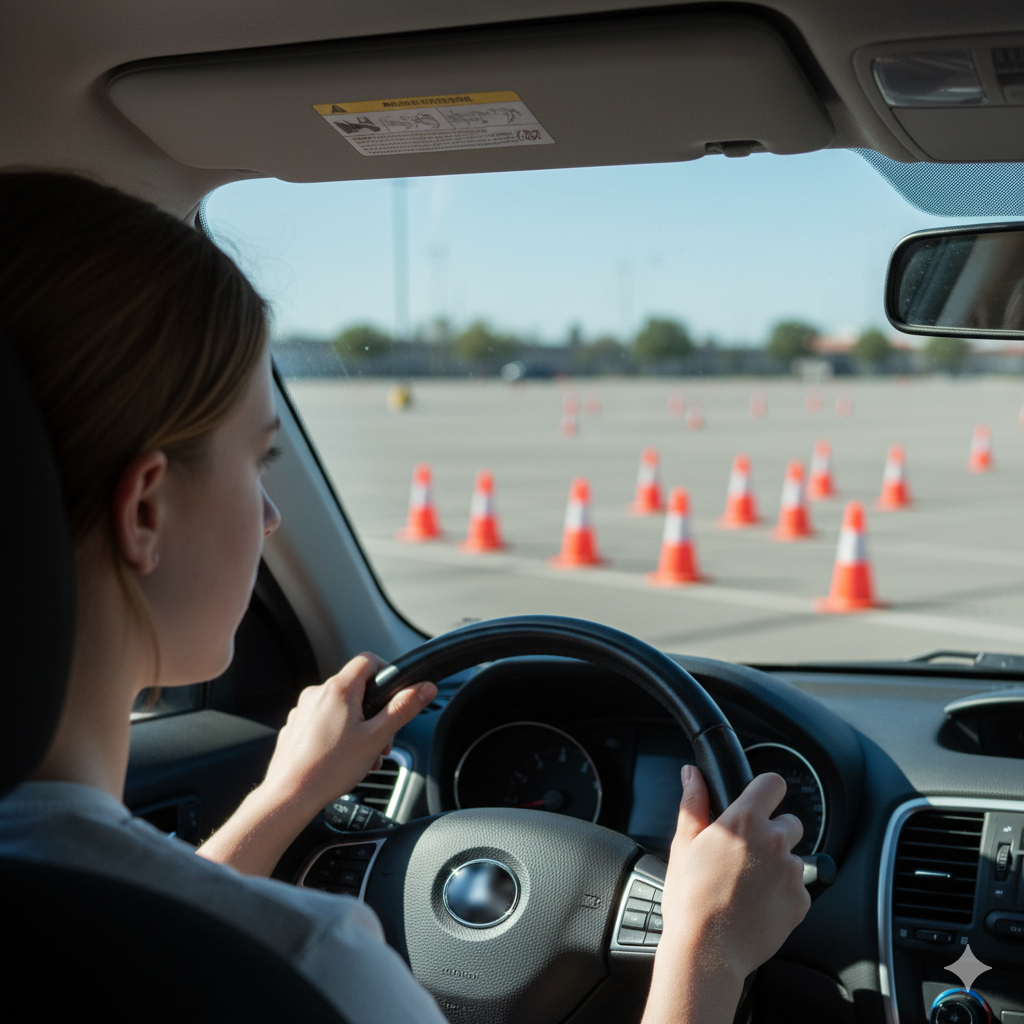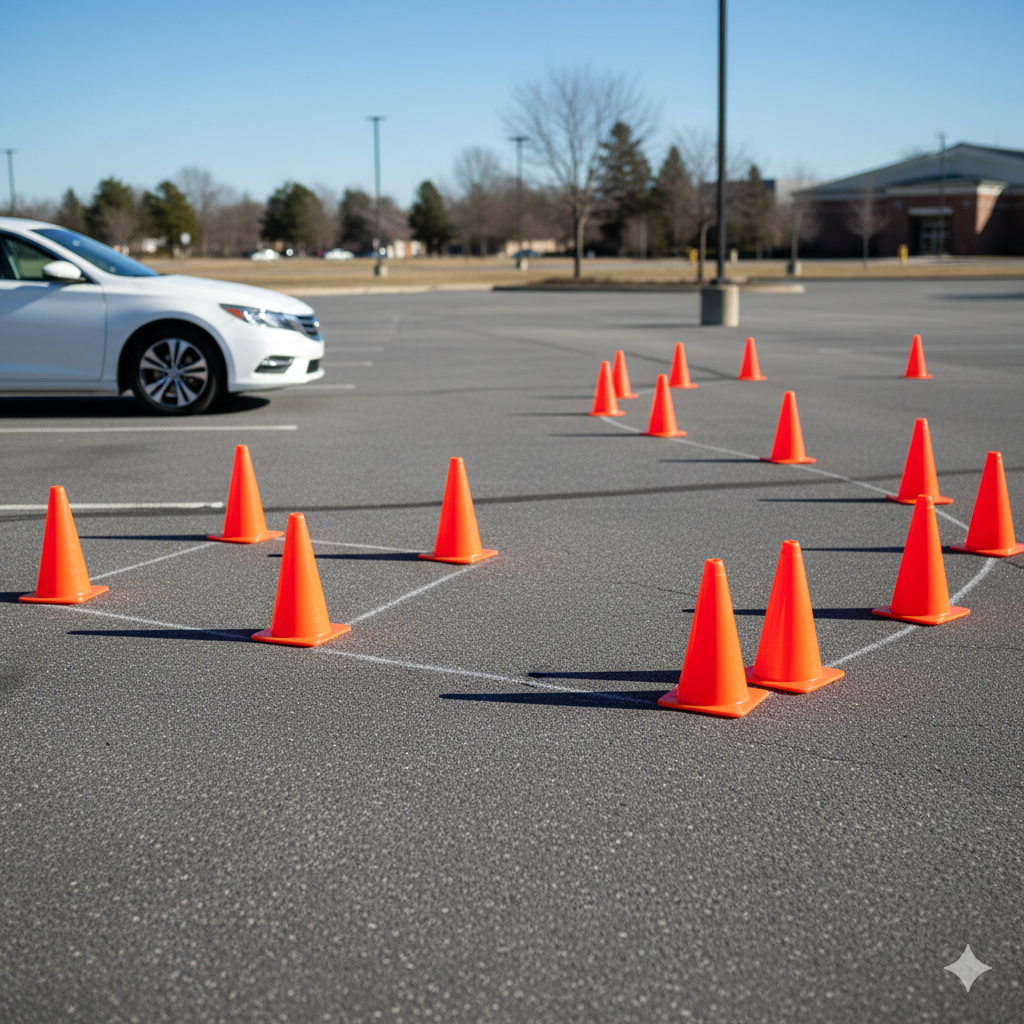Teen Driving Essentials: Empowering Teen Drivers for Safe Roads
Getting your driver’s license is a huge milestone for any teenager – a taste of freedom, independence, and the open road! For parents, it’s often a mix of excitement and a healthy dose of worry. The truth is, new drivers, especially teenagers, face unique challenges on the road. With less experience, they’re at a higher risk for accidents.1
But don’t fret! By understanding these risks and implementing smart safety practices, teen drivers can navigate the roads confidently and responsibly. Here’s what every teen driver and their family should know.
Understanding the Risks for New Teen Drivers

It’s not just about age; it’s about experience (or lack thereof!). Here are some key factors that contribute to higher risks for young drivers:
- Inexperience: Simply put, they haven’t spent enough hours behind the wheel to react instinctively to unexpected situations, bad weather, or complex traffic patterns.2
- Distractions: This is a big one. Cell phones (texting, talking, apps), friends in the car, loud music, and even eating can divert a new driver’s attention, sometimes with serious consequences.3
- Speeding and Reckless Driving: Teens are more prone to underestimating dangerous situations or taking risks, sometimes influenced by peer pressure.4
- Night Driving: Reduced visibility and fatigue make night driving particularly challenging for inexperienced drivers.5
- Alcohol and Drug Impairment: Even small amounts of alcohol or drugs can severely impair judgment and reaction time, which is why “zero tolerance” laws are in place for underage drivers.6
Essential Safety Tips for Teen Drivers
Here’s how teen drivers can develop safe habits and parents can support them:
- Put the Phone Away (and Out of Reach!): This is paramount. Texting or talking on a handheld phone while driving is illegal in many places and incredibly dangerous.7 Silence notifications, put the phone in the glove compartment, or use a “Do Not Disturb While Driving” mode.8 Lead by example, parents!
- Limit Passengers: Many states have graduated licensing laws that restrict the number of teen passengers a new driver can have, especially in the first few months.9 More passengers often mean more distractions. Adhere strictly to these rules.
- Buckle Up, Every Trip, Every Time: Make it a non-negotiable rule for everyone in the car. Seat belts save lives, period.10
- Understand and Obey Speed Limits: Speed limits aren’t suggestions; they’re set for safety.11 Drive defensively and adjust your speed for weather conditions, construction zones, and traffic.12
- Practice Makes Perfect (Especially at Night and in Bad Weather): New drivers should get extensive practice driving at night, in rain, and on different types of roads (highway, city, rural) with an experienced adult in the passenger seat.13
- Leave Space and Anticipate: Maintain a safe following distance from the car in front of you (at least three seconds). Always scan the road ahead and around you, looking for potential hazards and anticipating other drivers’ actions.
- Avoid Impaired Driving – Period: This means absolutely no alcohol or drugs. Even over-the-counter medications can sometimes cause drowsiness, so always read labels.14 Designated drivers are for parties, not for new drivers.
- Eliminate Other Distractions: Adjust mirrors, set your GPS, and choose your music before you start driving. Eating or grooming behind the wheel also takes your attention away from the road.15
- Keep Your Car Maintained: Regularly check tire pressure, oil levels, and lights. A well-maintained car is a safer car.
- Communicate with Parents: Establish open communication about driving experiences, challenges, and concerns. Parents, be available to listen without judgment and help problem-solve. Consider a parent-teen driving agreement.
For Parents: Your Role in Fostering Safe Habits

You are the most influential driving instructor your teen will ever have.
- Be a Role Model: Drive safely yourself. Your teen watches your habits.
- Set Clear Rules and Expectations: Use a formal parent-teen driving agreement that outlines consequences for breaking rules.16
- Continue Supervised Practice: Even after they get their license, continue to ride with them occasionally, especially in challenging situations.
- Educate and Discuss: Talk openly about the dangers of distracted driving, impaired driving, and peer pressure.
- Consider Telematics/Monitoring Apps: Some apps can help track driving behavior (speed, harsh braking) and offer valuable feedback.17
Driving is a privilege, and with it comes immense responsibility. By following these safety tips and maintaining open communication, teen drivers can build confidence, gain experience, and enjoy the journey safely.

Leave a Reply